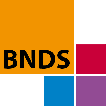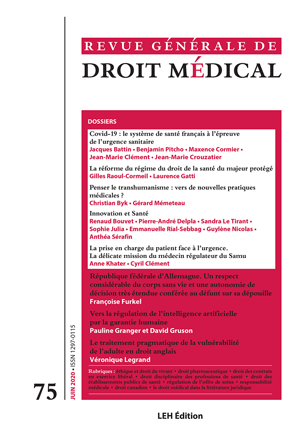0
Panier
0 €

Gérontologie et e-santé : le droit à l’épreuve de l’innovation et de la protection des personnages âgées
Theme :
Droit médico-social
,
Droits des patients et usagers
,
Éthique médicale/Bioéthique
,
Droit des nouvelles technologies en santé
,
Citer cet ouvrage :
Bouvet Renaud, Gérontologie et e-santé : le droit à l’épreuve de l’innovation et de la protection des personnages âgées ,RGDM, n°75, 2020, p.171-183
Exporter vers RIS
Télécharge un fichier pour utilisation dans EasyBib, Mendeley, Zotero, etc.
EXPORTER vers RIS
Télécharge un fichier pour utilisation dans EasyBib, Mendeley, Zotero, etc.
EXPORTER vers RIS


